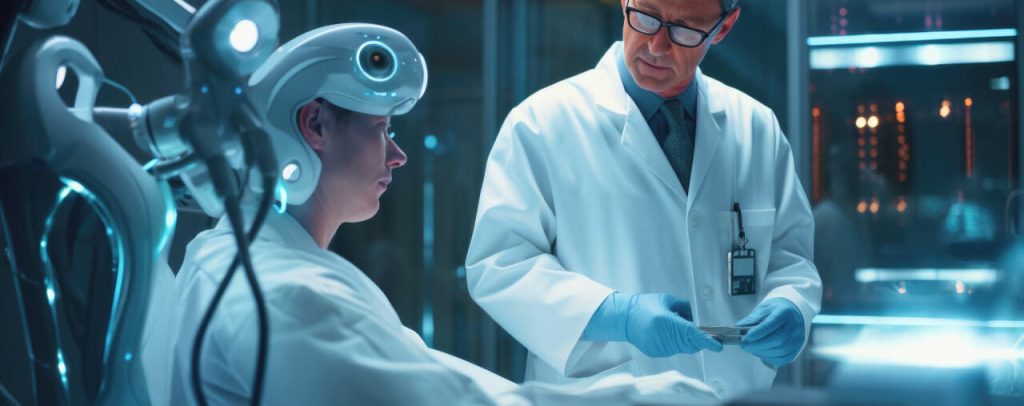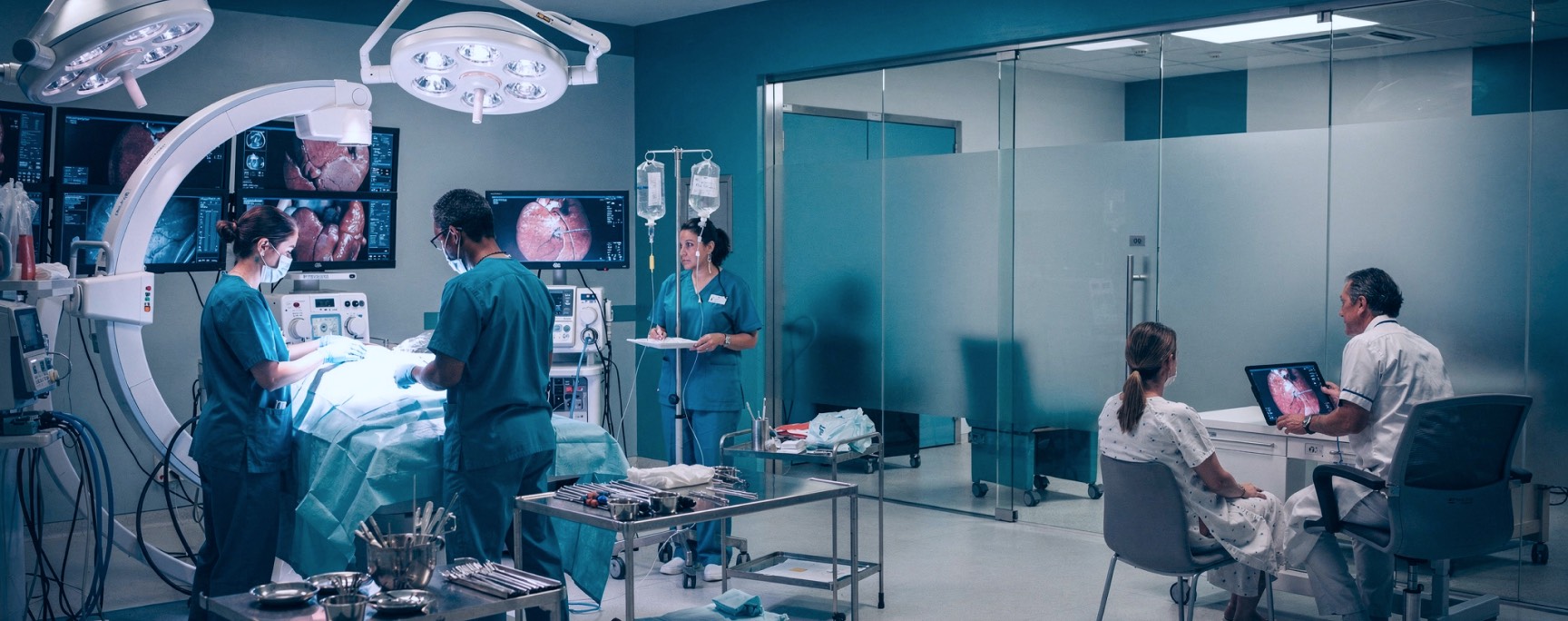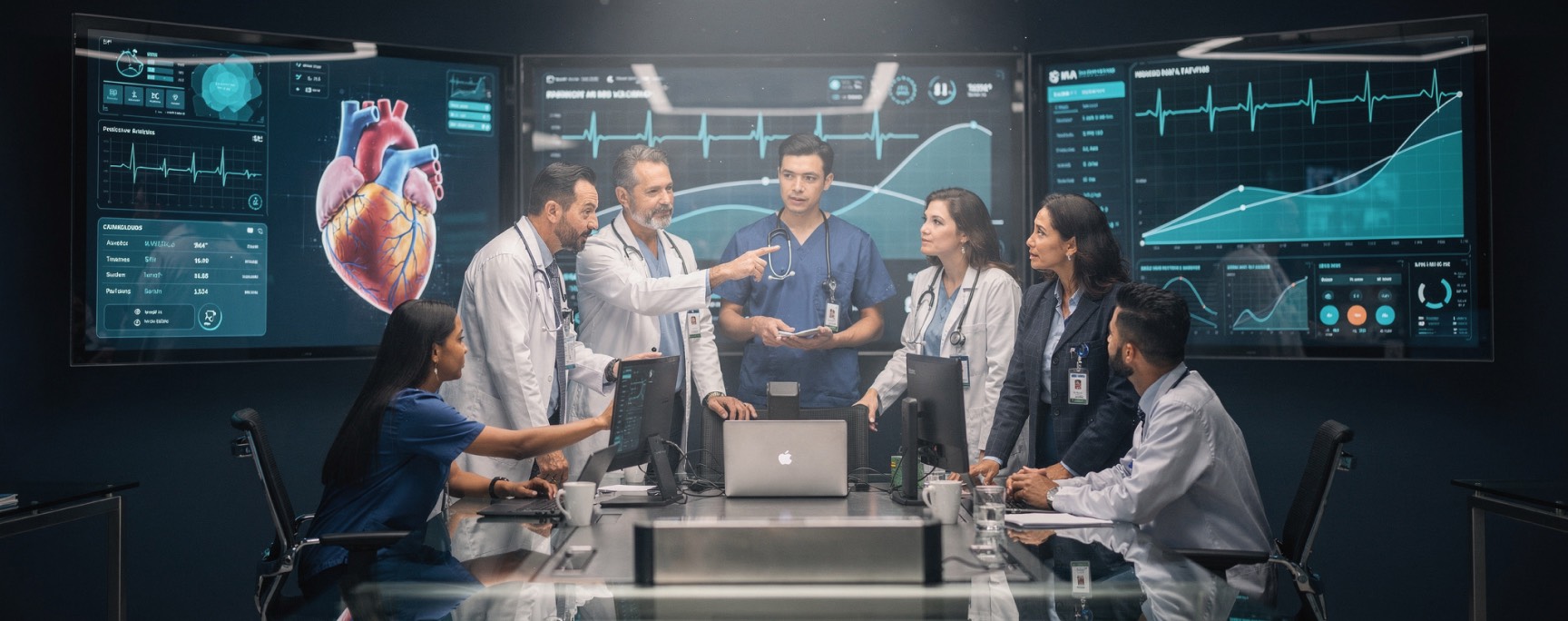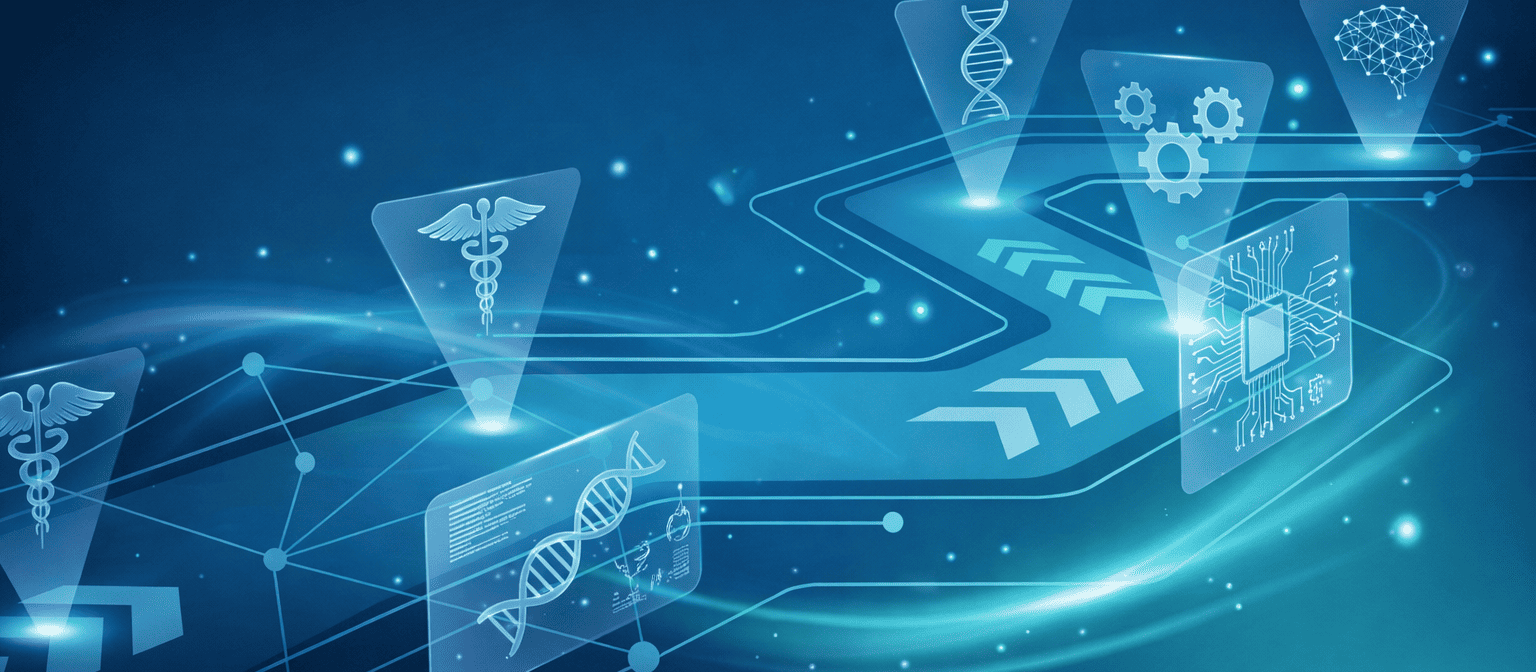Transforming Patient Care with Next-Gen Medical Device Software Development
Introduction
Medical device software development is key to improving patient care. It allows healthcare professionals to provide more accurate and efficient treatments. Next-gen software in medical devices is transforming diagnoses and therapeutics, boosting monitoring tools that enhance efficiency and patient outcomes. This software uses AI and ML to improve diagnostics, treatments, and patient monitoring. It helps healthcare organizations deliver better care while meeting regulations.
Understanding Medical Device Software
Software for medical devices is essential for operating and controlling medical equipment. It ensures imaging systems and portable diabetes devices work in clinics. This software is crucial. It impacts both patient safety and the performance of medical devices. Medical device software is subject to strict regulation because of its impact. It must follow the highest levels of accuracy.
As healthcare evolves, this software is key. It allows for precise diagnostics and ongoing monitoring of patients. It will influence the future of medical care. Knowing its uses shows how it improves patient care and healthcare. Various types of medical device software exist. These items serve specific functions, as some of them are listed below:
- Software as a Medical Device (SaMD)
Software as a Medical Device (SaMD) is the term for medical software that runs on its own without the need for hardware. It includes diagnostic software, mobile health apps, and clinical decision-support systems. Developers create these for smartphones and the cloud. SaMD differs from traditional devices. It has no hardware. For example, in-vitro diagnostics includes software. - Internet of Medical Things (IoMT)
The Internet of Medical Things (IoMT) is a network of healthcare devices and applications. They connect to healthcare systems via the Internet, enabling communication between machines. IoMT supports remote monitoring tools, wearables, and data analysis platforms, which improve patient care. Additionally, it makes telemedicine possible, which increases availability and decreases trips to the sanitarium. - Embedded Software
Most medical devices, like pacemakers and infusion pumps, must have embedded software to ensure their safe and effective operation. Most MedTech healthcare solutions must fit within specific hardware with time and space constraints. On the other hand, embedded software is also embedded in everyday devices, including telephones, security systems, and healthcare apps. It is vital for tasks like patient monitoring and medical imaging. - Clinical Information Systems
Clinical Information Systems (CIS) manage patient data. They are medical technology solutions that improve workflows and accuracy. CIS decreases errors, and patient data is instantly accessible. It works with hospital systems, improving communication, decisions, and safety.
Speed up the Development of Your Medical Device Software
Leverage our expertise in software engineering and AI/ML. Start today!
Contact Our Experts!Latest Medical Devices Transforming Patient Care
New medical devices are making healthcare better. They make the approach more accurate, efficient, and patient-focused. Doctors can now diagnose, treat, and check health in innovative ways. According to The Business Research Company, the global market for medical devices will grow to $863.2 billion in 2030.
Here are three devices that are paving the way for the future of healthcare:
- Diagnostic Devices
Diagnostics is the most fascinating development in medical equipment. There are emerging technologies that can identify any illness with unparalleled precision, from Alzheimer’s to Cancer.
Liquid biopsies, for instance, are novel blood diagnostics that can identify tumor cells or their DNA in the blood. They promise to detect cancer earlier than ever before and are less invasive and more convenient than tissue biopsies.
AI is also used as a diagnostic tool. AI can help doctors identify cancers in medical imaging more rapidly and precisely. Developing software for medical devices is crucial to building trustworthy AI systems. - Therapeutic Devices
Patient care is also being significantly impacted by new treatment technologies. Robotic surgical equipment, for instance, enables doctors to carry out intricate surgeries more precisely and safely. Additionally, these technologies shorten recovery times and lessen patient discomfort.
The pacemaker is another example of an ionic advance in therapy. The device that controls heartbeats is implanted. The gadget is compact and has a small, multi-year-long battery supply. Heart failure and arrhythmias are among the additional heart problems that pacemakers cure. Device advancement has been greatly aided by MedTech healthcare solutions. They are more successful in treating complicated cardiac problems. - Monitoring Devices
Patient care is being improved by new gadgets like fitness trackers and smartwatches. They help with early problem diagnosis and health management by monitoring vital signs, exercise, and sleep.
The Continuous Glucose Monitor (CGM), a novel monitoring tool, takes a blood glucose reading once per minute. Patients with diabetes can better manage their disease because of this technology. Software for medical devices is essential to their development. It must offer user-friendly interfaces for monitoring and controlling patients’ health.
Key Phases in Medical Device Software Development
Medical device software must be safe, functional, and compliant. So, its development is a structured process. Each phase, starting from planning to post-launch, is crucial. It creates reliable devices that improve patient care. Here’s an overview of this lifecycle.

- Concept and Planning
It defines a medical device’s goals and sets requirements. It includes threat operation reviews to concentrate on patient safety, paving the way for the development of Medical Device Software. - Design and Development
Developers must design the system architecture and code. Also, plan the UI. They must also meet requirements, improve the user experience, and adhere to established medical software development practices. - Verification and Validation
Verification checks whether the software meets the design specs, and validation checks whether it works as expected in real-life scenarios. Ensuring regulatory compliance is important. - Testing
Testers examine the software for bugs, security excrescencies, and usability issues. Ensures the device meets all safety and quality standards. - Post-Launch Support and Maintenance
Updates and compliance with regulations keep the device working. They also help in advancing patient care.
Roadblocks in Developing Medical Device Software
Medical device software development has unique challenges. We must address them to ensure patient safety and effective care. Each step is critical to the success of medical technologies. Includes ensuring compliance with complex regulations and integrating various systems. Below are some challenges found in the development process:
- Software Compliance
The biggest challenge is meeting regulations. This is crucial for the safety, function, and reliability of medical devices, which directly affects how patients are treated. - Data Privacy
The biggest challenge is keeping patient data confidential. This is vital to ensuring trust and improving the patient’s experience. - Custom Solutions
Developing custom software for specific healthcare needs is a challenging task. However, it is vital to improve treatment accuracy and provide personalized care. - Data Integration
Integrating patient data from various healthcare systems is challenging, but it’s crucial for smooth access to real-time information, which improves clinical decision-making and care efficiency.
How Medical Equipment is Advancing Patient Care

Medical technology is revolutionizing patient care, making it efficient and accessible. Software development in medicine boosts innovation, enhancing the quality of life and results for patients. Here’s how medical equipment is improving care:
- Reduced Costs
Medical Device Software solutions make medical processes quicker, less invasive, and more efficient. Patients now stay in the hospital for shorter periods and recover faster, and this software cuts costs. Creating this software is vital for these advancements. - Improved Quality of Life
New devices not only improve lives but also help manage chronic diseases. Take wearables, for example. They allow patients to stay active while managing their health. Medical device software provides instant data and customized care. - Increased Access to Care
Telemedicine and remote monitoring are game changers for patients in hard-to-reach areas. They can access care without traveling. These medical device software solutions enable virtual meetings and connect patients and doctors.
DASH Technologies: Advancing Patient Care with Next-Gen Medical Device Software
At Dash Technologies, we specialize in medical device software development, delivering next-gen embedded solutions that advance patient care. Our expertise in custom software development ensures that healthcare organizations receive tailored solutions designed to improve operational efficiency, enhance patient safety, and support better health outcomes.
Using advanced technologies such as AI/ML, regulatory compliance, and expert engineering, we create innovative, reliable software that powers medical devices and systems. Contact us to develop cutting-edge medical device software tailored to your needs.
About Dash

Dash Technologies Inc.
We’re technology experts with a passion for bringing concepts to life. By leveraging a unique, consultative process and an agile development approach, we translate business challenges into technology solutions Get in touch.







